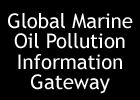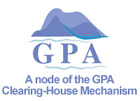|
|
|
Barcelona
Convention
The
Convention
for the Protection of the Marine Environment and the Coastal
Region of the Mediterranean ( Barcelona Convention) was
adopted in 1976, entered in force 1978, and was revised in Barcelona
in 1995. The
objective of the Convention is to achieve international co-operation
for a co-ordinated and comprehensive approach to the protection
and enhancement of the marine environment and the coastal region
of the Mediterranean area. Protocols
to the Convention include:
-
Protocol
for the Prevention and Elimination of Pollution of the
Mediterranean Sea by Dumping from Ships and Aircraft (Dumping
Protocol); adopted in 1976, in force in 1978, revised
in in 1995 as the Protocol for the Prevention and Elimination
of Pollution of the Mediterranean Sea by Dumping from
Ships and Aircraft or Incineration at Sea.
-
-
Protocol
for the Protection of the Mediterranean Sea against Pollution
from Land-Based Sources (LBS
Protocol); adopted in 1980, in force in 1983, amended
in 1996 as the Protocol for the Protection of the Mediterranean
Sea against Pollution from Land-Based Sources and Activities.
-
The
Protocol Concerning Mediterranean Specially Protected
Areas (SPA
Protocol); adopted in 1982, in force in 1986, revised
in 1995 as the Protocol Concerning Specially Protected
Areas and Biological Diversity in the Mediterranean (SPA
and Biodiversity Protocol).
-
The
Protocol for the Protection of the Mediterranean Sea against
Pollution Resulting from Exploration and Exploitation
of the Continental Shelf and the Seabed and its Subsoil
(Offshore
Protocol); adopted in 1994, not yet in force.
-
The
Protocol on the Prevention of Pollution of the Mediterranean
Sea by Transboundary Movements of Hazardous Wastes and
their Disposal (Hazardous
Wastes Protocol); adopted in 1996, not yet in force.
|
Mediterranean
Action Plan + MEDU
A
Mediterranean Action Plan
was adopted in 1975. Its legal framework comprises the Barcelona
Convention. The MAP tackles Mediterranean environmental and
sustainable development issues (a widening of its remit in 1995)
and has four key fields of activity: Curbing pollution; Safeguarding
natural and cultural resources; Managing coastal areas; and
Integrating the environment and devevlopment. •••
The MAP Coordinating Unit (MEDU) was established to co-ordinate
activities within the framework of MAP, including the Barcelona
Convention. MEDU is the secretariat of the MAP and is responsible
for its implementation. (See also a list of MAP NGO
partners.) ••• The Mediterranean Commission
on Sustainable Development (MCSD) was set up in 1996 as an advisory
body to MAP. The Programme for the Assessment and Control of
Pollution in the Mediterranean Region (MED POL) represents a
key tool to the reduction of land-based pollution. •••
There are six MAP Regional Activity Centres, each offering expertise
in specific fields of action:
- Blue
Plan Regional Activity Centre (BP/RAC)
- Priority
Actions Programme Regional Acitivity Centre (PAP/RAC)
- Specially
Protected Areas Regional Activity Centre (SPA/RAC)
- Regional
Marine Pollution Emergency Responce Centre for the Mediterranean
Sea (REMPEC).
- Environment
Remote Sensing Regional Acitivity Centre (ERS/RAC)*
- Cleaner
Production Regional Acitivity Centre (CP/RAC)
*Centro
di Telerilevamento Mediterraneo, CTM
(Mediterranean remote sensing center) acts as the Regional
Activity Center for Environment Remote Sensing. See also "Oil
monitoring in the Mediterranean".
|
REMPEC
Regional
Marine Pollution Emergency Response Centre for the Mediterranean
Sea
(REMPEC). In order to assist the Mediterranean coastal States
in the implementation of the Emergency Protocol to the Barcelona
Convention, the Regional Oil Combating Centre for the Mediterranean
Sea (ROCC), the first such regional centre in the world within
the framework of the UNEP Regional Seas Programme, was
established in Malta in1976. Operating on the basis of
the decisions of the Contracting Parties to the Barcelona Convention,
the Centre has been administered by the International Maritime
Organization, and financed by the Mediterranean Trust Fund.
Its mandate was extended in 1987 to include "hazardous
substances other than oil", and in 1989 when the new objectives
and functions of the Centre were approved it changed its name
to the present one. The objectives are to:
- strengthen
the capacities of the coastal States in the Mediterranean
region with a view to preventing pollution of the marine
environment from ships and ensuring the effective implementation
in this region of the rules which are generally recognized
at the international level, relating to the prevention of
pollution from ships, and with a view to abating, combating
and, to the fullest possible extent, eliminating pollution
of the marine environment irrespective of the source;
- develop
regional co-operation in the field of prevention of pollution
of the marine environment from ships, and to facilitate
co-operation among the Mediterranean coastal States in order
to respond to pollution incidents which result or may result
in a discharge of oil or other hazardous and noxious substances
and which require emergency actions or other immediate response;
- assist
coastal States of the Mediterranean region, which so request
in the development of their own national capabilities for
response to pollution incidents which result or may result
in a discharge of oil or other hazardous and noxious substances
and to facilitate information exchange, technological co-operation
and training;
- provide
a framework for exchange of information on operational,
technical, scientific, legal and financial matters, and
to promote dialogue aimed at conducting co-ordinated actions
at national, regional and global levels for the implementation
of the Protocol Concerning Co-operation in Preventing Pollution
from Ships and in Combating Pollution of the Mediterranean
Sea by Oil and other Hazardous and Noxious Substances in
Cases of Emergency.
|
Short
and Medium-term Priority Environmental Action Programme
Short
and Medium-term Priority Environmental Action Programme (SMAP).
A framework programme of action for the protection of the Mediterranean
environment, within the context of the Euro-Mediterranean Partnership.
It was adopted unanimously by the 1997 Euro-Mediterranean Ministerial
Conference on the Environment. Priority fields include, e.g.,
integrated water management, integrated waste management, and
integrated coastal zone management. Projects
related to the setting up of port reception facilities for treatment
of liquid and solid waste, generated by ships, as well as development
and implementation of national and sub-regional plans to combat
accidental oil spills from ships, including the establishment
of oil spills response centres, are included in the Programme.
|
Mediterranean
MoU on Port State Control
According
to the Mediterranean MoU on
Port State Control, signed in 1997, each Authority will
establish and maintain an effective system of Port State Control
with a view of ensuring that, without discrimination as to flag,
foreign merchant ships visiting the ports of its State comply
with the standards laid down in the relevant international instruments.
|
European
Sea Ports Organization
The
European Sea Ports Organization
(ESPO) aims at influencing public policy in the European Union
and to achieve a safe, efficient and environmentally sustainable
European port sector, operating as a key element of a transport
industry where free and undistorted market conditions prevail,
as far as practicable. According to ESPO, ports are concerned
about the environment. ESPO believes that maritime transport
is central to the issue of sustainable development within Europe.
The ports support measures to reduce marine pollution and discourage
dumping of waste at sea. See the ESPO Waste
Management Plan For Ship Generated Waste. |

|
|


